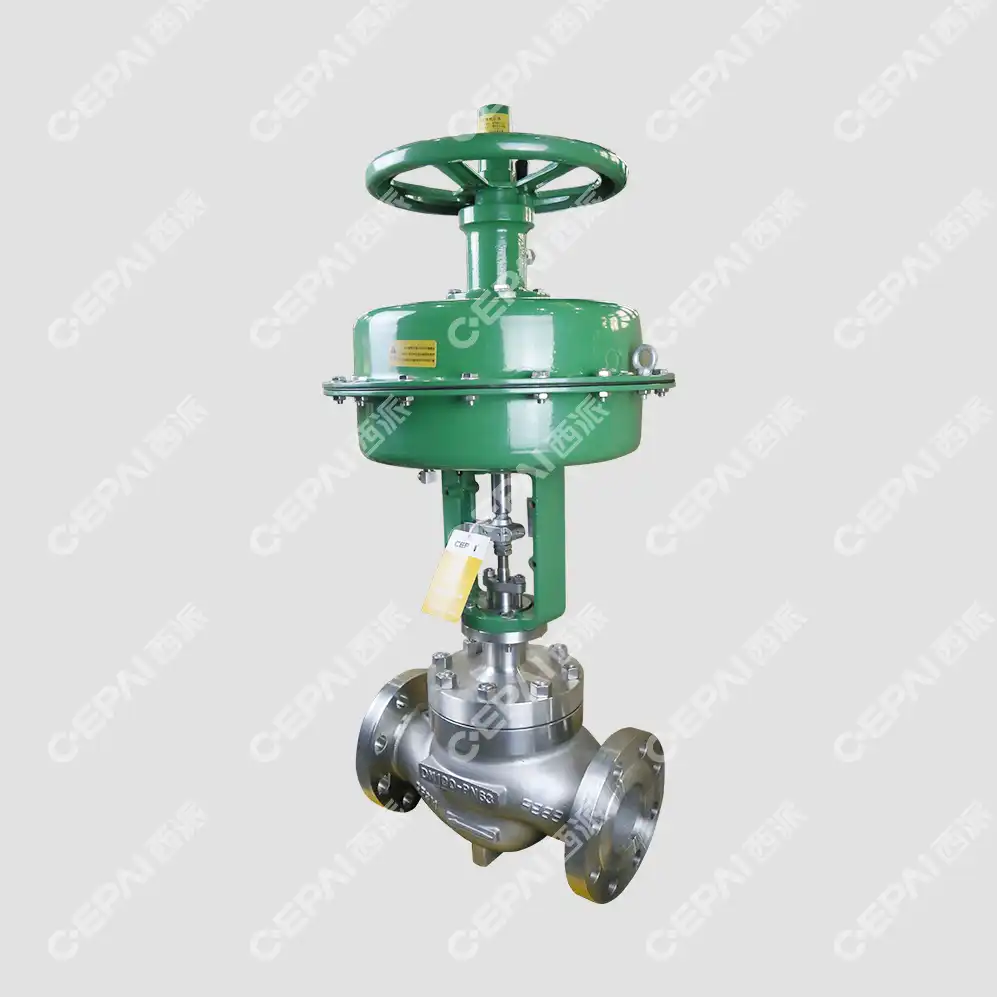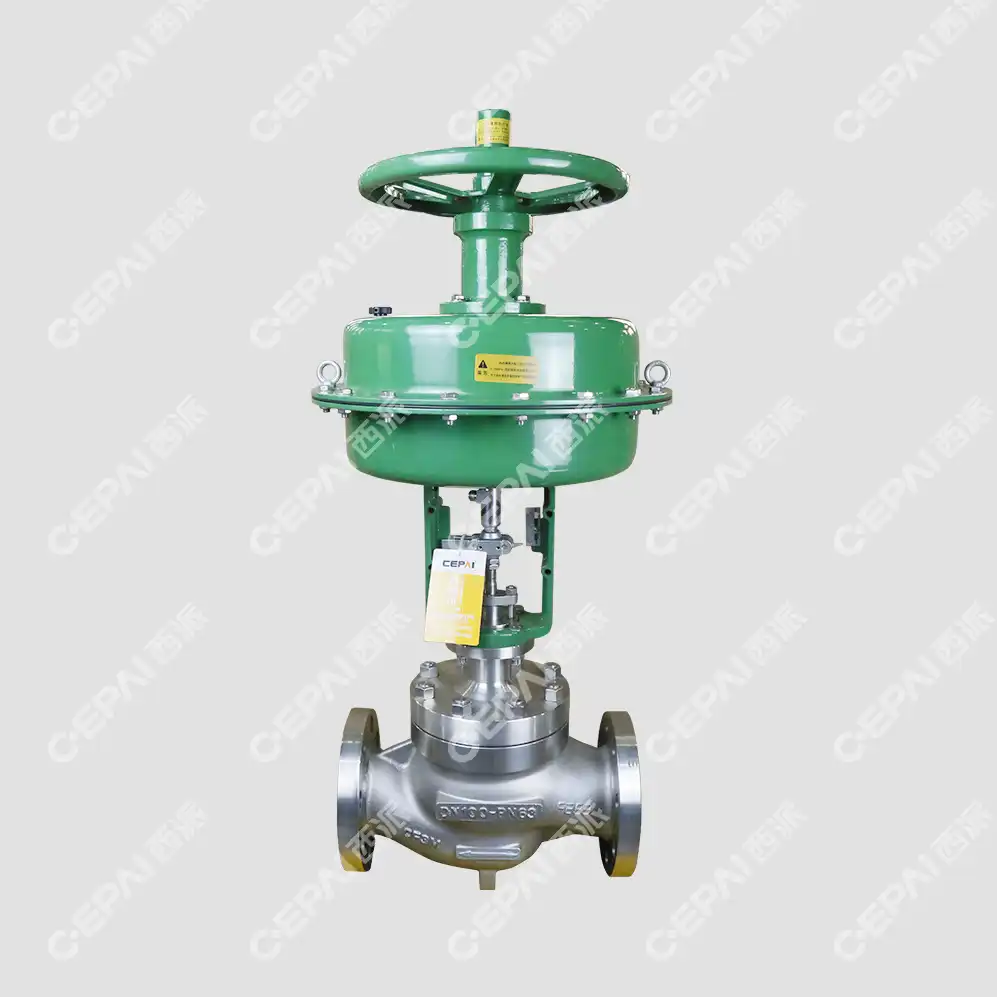Top Considerations When Sourcing Valves for Petrochemical Applications
Selecting the right valves for petrochemical applications represents one of the most critical decisions in industrial process design and safety management. The petrochemical industry operates under extreme conditions involving high pressures, corrosive chemicals, and hazardous environments where valve failure can result in catastrophic consequences. When sourcing valves for these demanding applications, engineers and procurement specialists must evaluate multiple factors including material compatibility, safety certifications, performance reliability, and long-term operational costs. Among the various valve technologies available, Pneumatic Control Valves have emerged as essential components due to their precise control capabilities, fail-safe operation, and ability to handle complex process requirements in petrochemical facilities.
Critical Material Selection and Chemical Compatibility
Understanding Corrosion Resistance Requirements
Material selection forms the foundation of successful valve sourcing for petrochemical applications. The harsh chemical environment in petrochemical facilities demands valves constructed from materials that can withstand prolonged exposure to acids, bases, solvents, and other aggressive chemicals. Stainless steel grades such as 316L and duplex stainless steels offer excellent corrosion resistance for many applications, while exotic alloys like Hastelloy C-276 and Inconel provide superior performance in highly corrosive environments. When selecting Pneumatic Control Valves for petrochemical processes, engineers must carefully analyze the chemical composition of process fluids, operating temperatures, and pressure conditions to ensure optimal material compatibility. The valve body, trim components, and sealing materials must all demonstrate proven resistance to the specific chemicals they will encounter throughout their operational lifecycle.

Evaluating Temperature and Pressure Ratings
Petrochemical processes often operate at extreme temperatures and pressures that challenge conventional valve designs. High-temperature applications may require valves capable of operating at temperatures exceeding 500°C, while cryogenic processes demand materials that maintain their mechanical properties at temperatures below -100°C. Pneumatic Control Valves designed for petrochemical applications must incorporate temperature-resistant actuators, specialized sealing systems, and thermal barrier coatings to ensure reliable operation across wide temperature ranges. Pressure ratings must account not only for normal operating conditions but also for potential pressure surges, thermal expansion effects, and emergency scenarios. Advanced valve designs incorporate pressure relief features and robust construction methods that exceed standard pressure class requirements to provide additional safety margins in critical petrochemical applications.
Specialized Coating and Surface Treatment Technologies
Surface treatments and protective coatings play a crucial role in extending valve service life in petrochemical environments. Hard-facing applications using materials like Stellite or tungsten carbide provide exceptional wear resistance for valves handling abrasive or erosive media. Chemical-resistant coatings such as PTFE, PFA, or specialized ceramic coatings create protective barriers against aggressive chemicals while maintaining smooth flow characteristics. Pneumatic Control Valves in petrochemical service benefit from advanced surface treatments that reduce friction, prevent galling, and minimize maintenance requirements. These treatments must be carefully selected based on the specific operating conditions and chemical exposure profiles of each application to ensure optimal performance and longevity.
Safety Standards and Certification Requirements
International Safety and Performance Standards
Petrochemical facilities operate under stringent safety regulations that mandate compliance with multiple international standards and certification requirements. API (American Petroleum Institute) standards such as API 6D for pipeline valves and API 598 for valve testing provide fundamental requirements for valve design, manufacturing, and testing in petroleum applications. Additionally, ASME B16.34 establishes pressure-temperature ratings and material requirements for valves in pressure vessel applications. Pneumatic Control Valves must meet these standards while also complying with functional safety requirements outlined in IEC 61508 and IEC 61511 for safety instrumented systems. Manufacturers must demonstrate compliance through rigorous testing protocols, documented quality management systems, and third-party certification processes that validate valve performance under simulated operating conditions.
Fire Safety and Emergency Response Capabilities
Fire safety represents a paramount concern in petrochemical facilities, requiring valves to maintain their integrity and functionality during fire emergencies. API 607 fire testing standards establish requirements for valves to operate and seal effectively when exposed to fire conditions, ensuring that emergency shutdown systems remain functional during critical incidents. Pneumatic Control Valves designed for petrochemical applications must incorporate fire-safe design features including metal-to-metal sealing, graphite packing systems, and actuator components that maintain functionality at elevated temperatures. Emergency response capabilities must include fail-safe operation modes, rapid response times, and manual override systems that allow operators to maintain process control during power failures or instrument air supply interruptions.
Hazardous Area Classification and Explosion Protection
Petrochemical facilities typically contain hazardous atmospheres that require specialized equipment designed to prevent ignition of flammable gases or vapors. Valve actuators and control systems must comply with ATEX directives in Europe or Class I, Division 1/2 requirements in North America, depending on the installation location and hazardous material classifications. Pneumatic Control Valves operating in these environments require explosion-proof or intrinsically safe actuator designs, specialized electrical connections, and certified components that eliminate potential ignition sources. Manufacturers must provide comprehensive documentation demonstrating compliance with applicable hazardous area standards and maintain certifications from recognized testing laboratories to ensure regulatory compliance and operational safety.
Performance Optimization and Operational Efficiency
Precision Control and Process Stability
Modern petrochemical processes demand exceptional precision in flow control, pressure regulation, and temperature management to optimize product quality and operational efficiency. Advanced Pneumatic Control Valves incorporate sophisticated trim designs, characterized flow coefficients, and rangeability capabilities that enable precise control across wide operating ranges. Digital positioners and smart actuator technologies provide enhanced control accuracy, diagnostic capabilities, and predictive maintenance features that minimize process variability and improve overall system performance. The selection of appropriate valve sizing, trim geometry, and control characteristics directly impacts process stability, energy efficiency, and product quality in petrochemical applications.

Maintenance Requirements and Lifecycle Costs
Total cost of ownership extends far beyond initial valve purchase prices to encompass installation costs, maintenance requirements, spare parts availability, and operational downtime considerations. Pneumatic Control Valves designed for petrochemical service must balance performance requirements with maintainability features that minimize service interruptions and reduce lifecycle costs. Modular designs enable component replacement without complete valve removal, while standardized spare parts and maintenance procedures reduce inventory requirements and technician training needs. Predictive maintenance technologies integrated into modern valve systems provide early warning of potential failures, enabling proactive maintenance scheduling that prevents unplanned shutdowns and extends equipment service life.
Integration with Digital Control Systems
Contemporary petrochemical facilities rely heavily on distributed control systems (DCS) and supervisory control and data acquisition (SCADA) systems for process monitoring and optimization. Pneumatic Control Valves must seamlessly integrate with these digital platforms through standardized communication protocols such as HART, Foundation Fieldbus, or Profibus. Smart valve technologies provide real-time diagnostic information, performance monitoring data, and predictive analytics that enhance overall process control capabilities. Digital integration enables centralized valve management, remote configuration capabilities, and advanced control strategies that optimize process performance while reducing operator workload and improving safety outcomes.
Conclusion
Successful valve sourcing for petrochemical applications requires comprehensive evaluation of material compatibility, safety certifications, and performance requirements that directly impact operational safety and efficiency. The selection process must balance immediate functional needs with long-term lifecycle considerations, ensuring that chosen valve solutions provide reliable service throughout their operational lifetime while meeting stringent industry standards and regulatory requirements.
Ready to enhance your petrochemical operations with world-class valve solutions? As a leading China Pneumatic Control Valve factory, CEPAI Group combines cutting-edge manufacturing capabilities with proven expertise in petrochemical applications. Our comprehensive product portfolio, backed by ISO quality systems and international certifications, positions us as your trusted China Pneumatic Control Valve supplier for critical process applications. Whether you're seeking standard solutions or custom-engineered valves, our experienced team provides complete support from initial consultation through ongoing service. As a premier China Pneumatic Control Valve manufacturer, we offer competitive Pneumatic Control Valve wholesale pricing without compromising quality or performance. Contact us today to discover our complete range of Pneumatic Control Valve for sale options, request detailed Pneumatic Control Valve price quotations, or obtain our comprehensive Pneumatic Control Valve brochure featuring technical specifications and application guidelines. Experience the CEPAI difference – reach out to cepai@cepai.com for expert consultation and innovative valve solutions that drive petrochemical excellence.
References
1. Johnson, M.R. and Patterson, D.L. "Material Selection Criteria for Petrochemical Valve Applications." Journal of Process Safety and Environmental Protection, Vol. 98, 2019, pp. 245-258.
2. Rodriguez, A.M., Chen, W.K., and Thompson, R.S. "Safety Standards and Certification Requirements for Industrial Valves in Hazardous Environments." International Journal of Pressure Vessels and Piping, Vol. 185, 2020, pp. 104-117.
3. Williams, P.J., Kumar, S., and Anderson, L.H. "Performance Optimization Strategies for Control Valves in Petrochemical Process Applications." Chemical Engineering Research and Design, Vol. 162, 2021, pp. 89-103.
4. Lee, K.H., Morrison, B.C., and Davis, T.R. "Lifecycle Cost Analysis and Maintenance Optimization for Industrial Valve Systems." Reliability Engineering and System Safety, Vol. 208, 2020, pp. 107-119.
_1745994790767.webp)
Get professional pre-sales technical consultation and valve selection services, customized solution services.

About CEPAI


